- Advice
- Camping Tips
- Coastal Camping Tips
20+ Useful Beach Camping Tips
When it comes to camping experiences, it’s hard to beat waking up near crystal-clear waters, rolling sand dunes or a beautiful bay.
Whether it’s a family getaway in a picture-perfect Cornish village or a walking adventure through the Western Isles, camping makes the UK’s treasure trove of coastal locations accessible and affordable, whatever the weather.
There is, of course, the chance of weather conditions to factor in, but inclement weather doesn’t have to mean putting your coastal camping adventure on hold. It’s important to plan ahead to make sure you and your loved ones stay safe and comfortable. So, from choosing the right kit through to pitching up on a wet and windy day, here are our top tips and hacks for an enjoyable coastal camping trip.
- Take care choosing your campsite
- Check the weather forecast beforehand
- Write a checklist before leaving
- Ensure your tent is suitable for any weather
- Have plenty of outdoor and indoor storage
- Make sure dogs are welcome
- Purchase a windbreak
- Bring a camping stove windshield
- Pack activities for the whole family
- Check your tent for leaks
- Maintain a sand-free unit
- Avoid insects
- Clean up after yourself
- Follow water safety guidelines
- Stay hydrated
- Wear SPF!
- Pack a picnic blanket to relax on
- Pack some foldable camping chairs
- Bring a cooler box
- Carry binoculars
- Bring extra layers
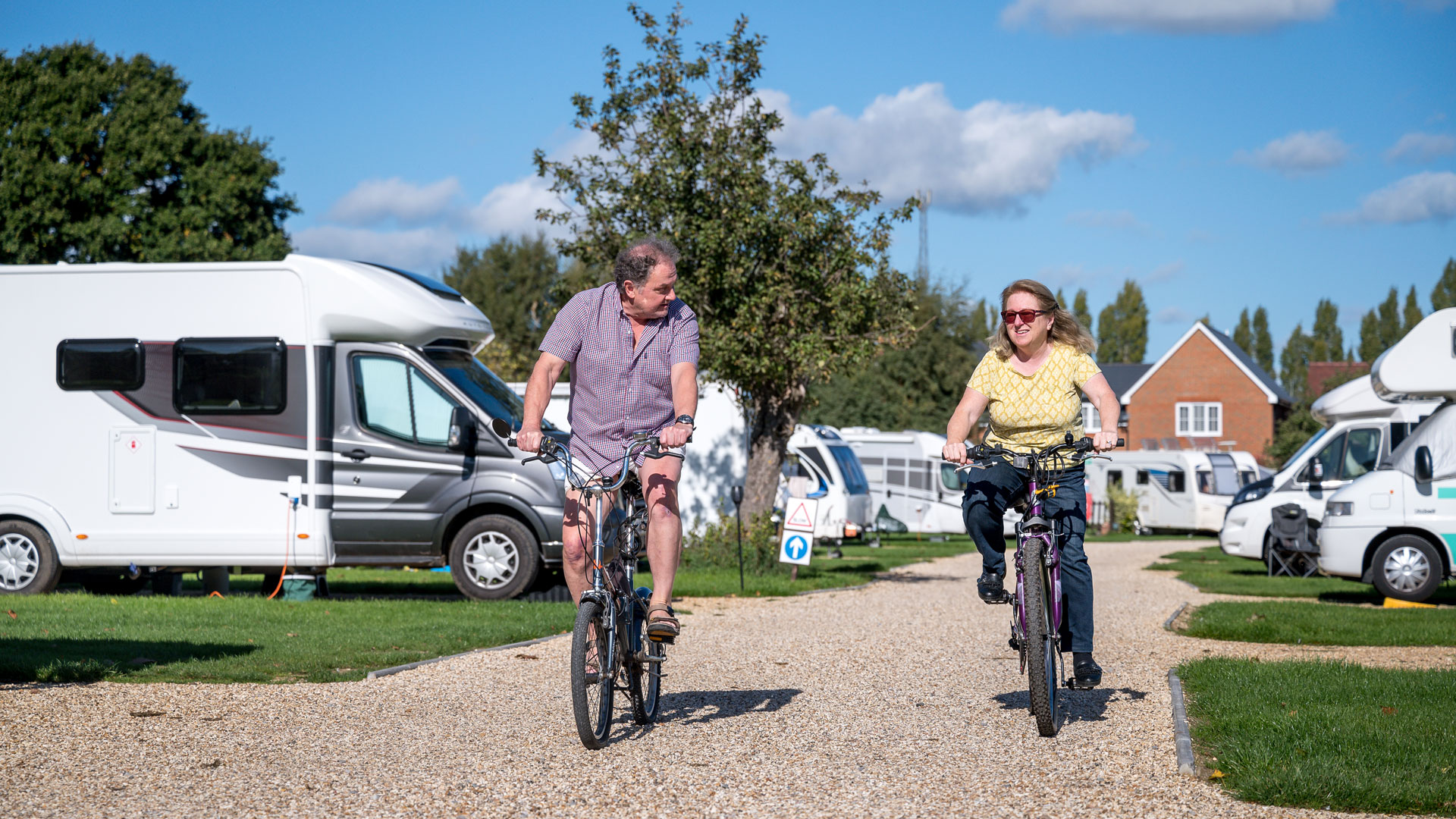
When it comes to camping on the beach itself, this falls into “wild camping” and is not permitted in most instances. So, when looking for a coastal campground make sure you check the proximity from the campsite to the beach. Our campsites have facility icons to indicate whether it’s a coastal campsite or if there's a sea view from the campsite. You can view all of our stunning beach campsites here.
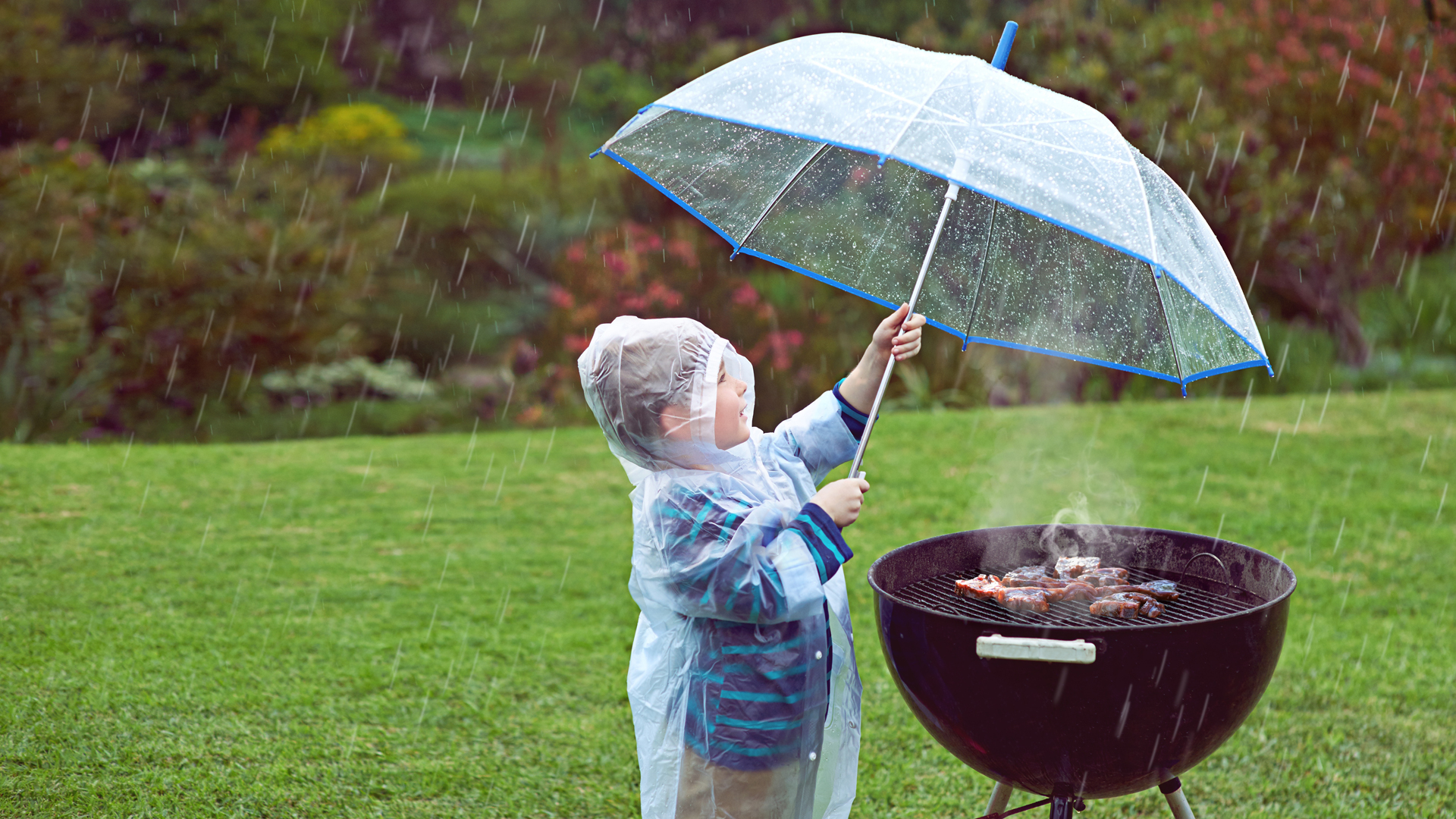
Camping by the beach means unpredictable weather, making it important to check the forecast before you go, so you can pack appropriately. Our summer and winter camping blogs both give tips on camping in different weather conditions.

With the excitement of a beach camping holiday upcoming, it's so easy to forget to bring an item or two. Check out our beach holiday packing list to make sure you’ve got everything you need for a stress-free holiday.
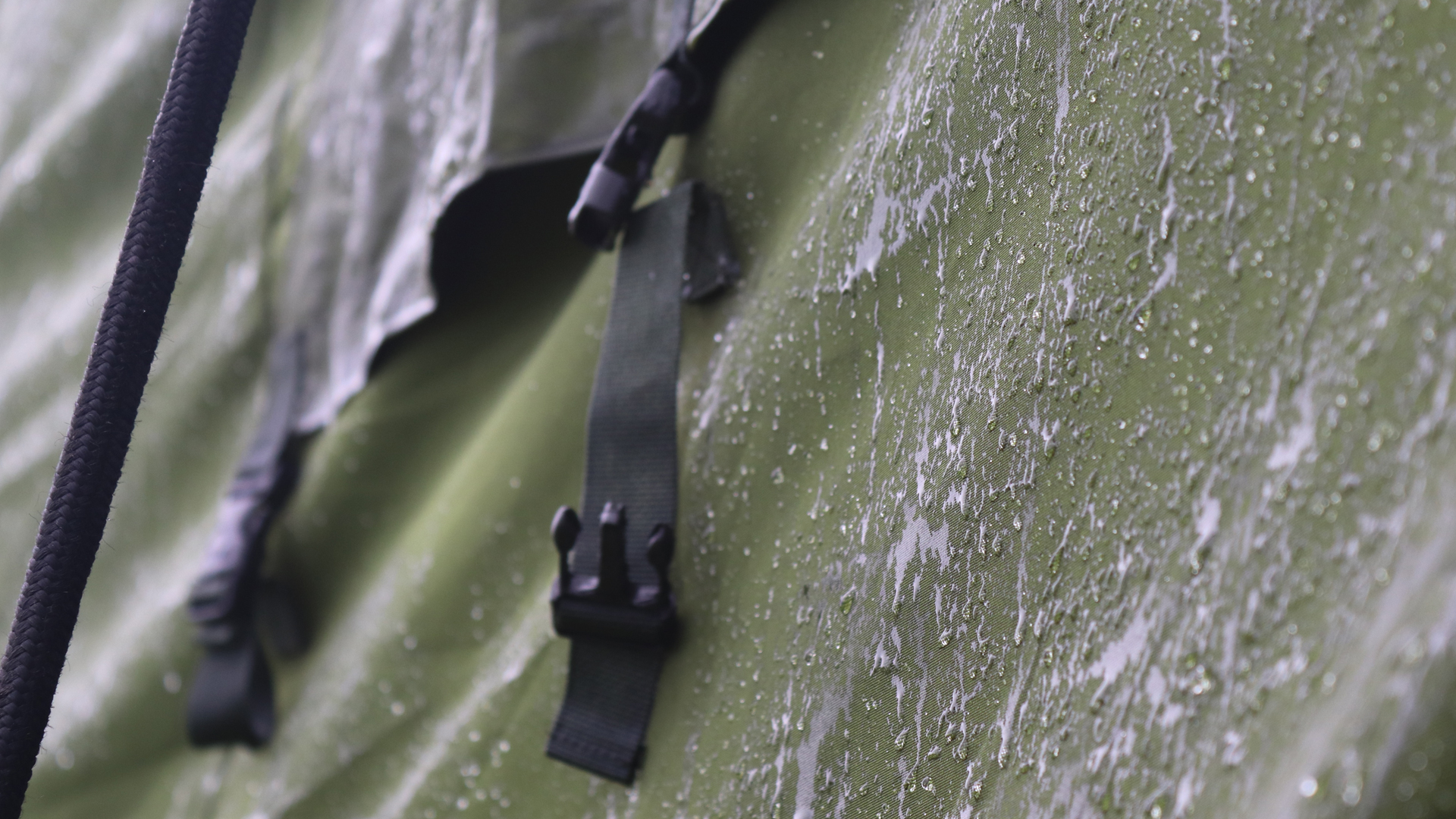
Does your current tent have what it takes to deal with wet, blustery conditions or a mega heat wave?
Although a British heatwave is a rare treat, the heat can sometimes be unbearable. Make sure your tent has features such as blackout technology to keep the sunlight and heat out, as well as vents or windows to allow air to circulate throughout the day.
In case of heavy rain, ‘weatherproof’ tents may not be enough to deal with a downpour. What you really need for a coastal adventure is a ‘waterproof’ tent, and for this, it’s vital to check the strength of your tent’s PU waterproof coating.
You can do this by looking at the tent’s Hydrostatic Head (HH) rating. In simple terms, the higher the rating, the more rainfall the tent can cope with, without water penetrating the weave of the nylon fabric. Technically, a tent with a HH rating of 1000 or above can be described by manufacturers as waterproof, but look for a model with a HH rating of at least 3000 for a reassuring level of protection against heavy rainfall.
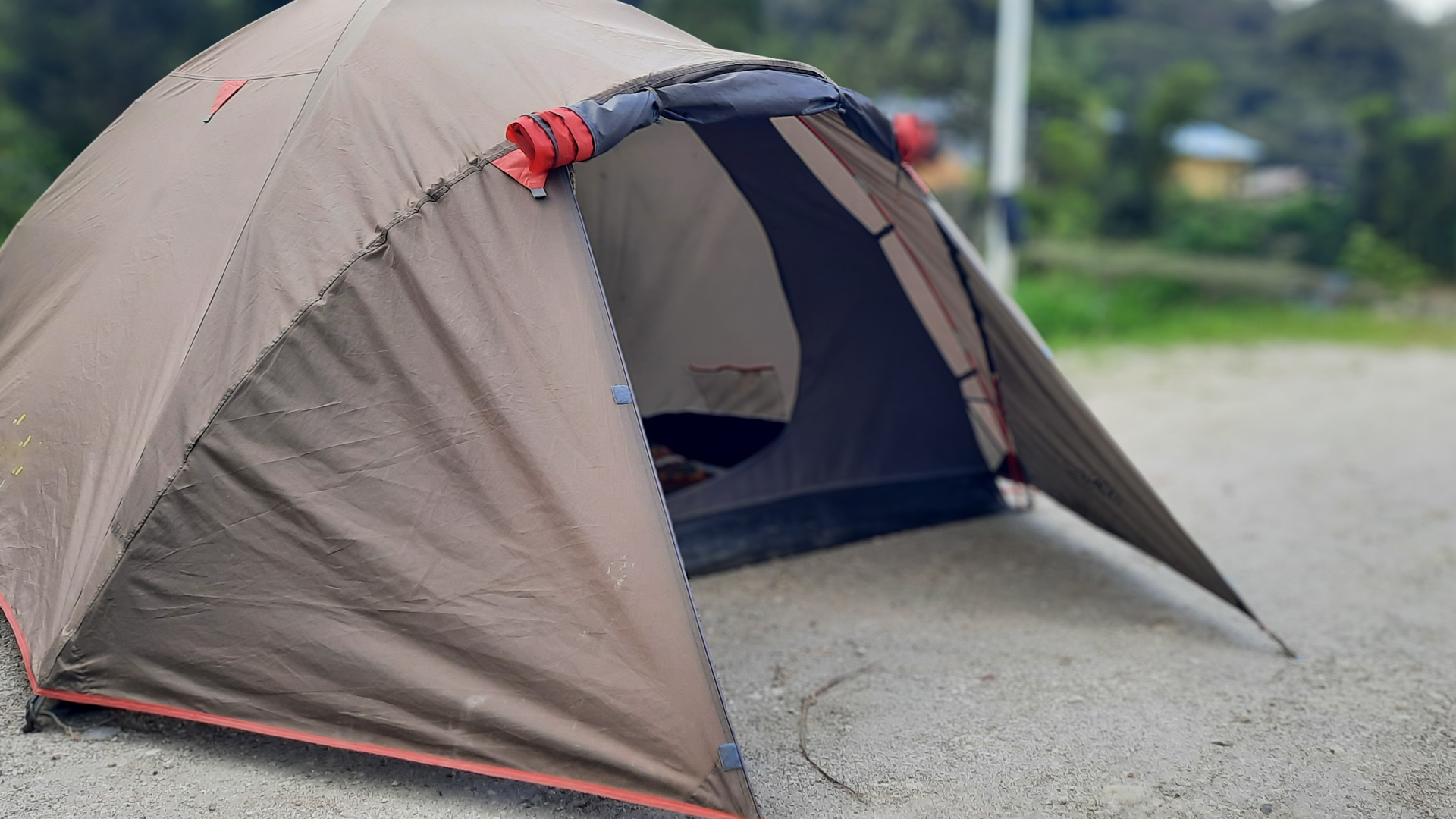
A camping unit with an awning or outdoor storage is great for storing muddy boots, wet swimwear, or a sandy towel. This will go a long way in keeping the inside of your unit clean, dry, and, most importantly, sand-free!
When you’re looking to purchase a camping unit, keep your eyes peeled for one with a lot of internal storage too. This way you can keep your belongings safe and organised while coastal camping.
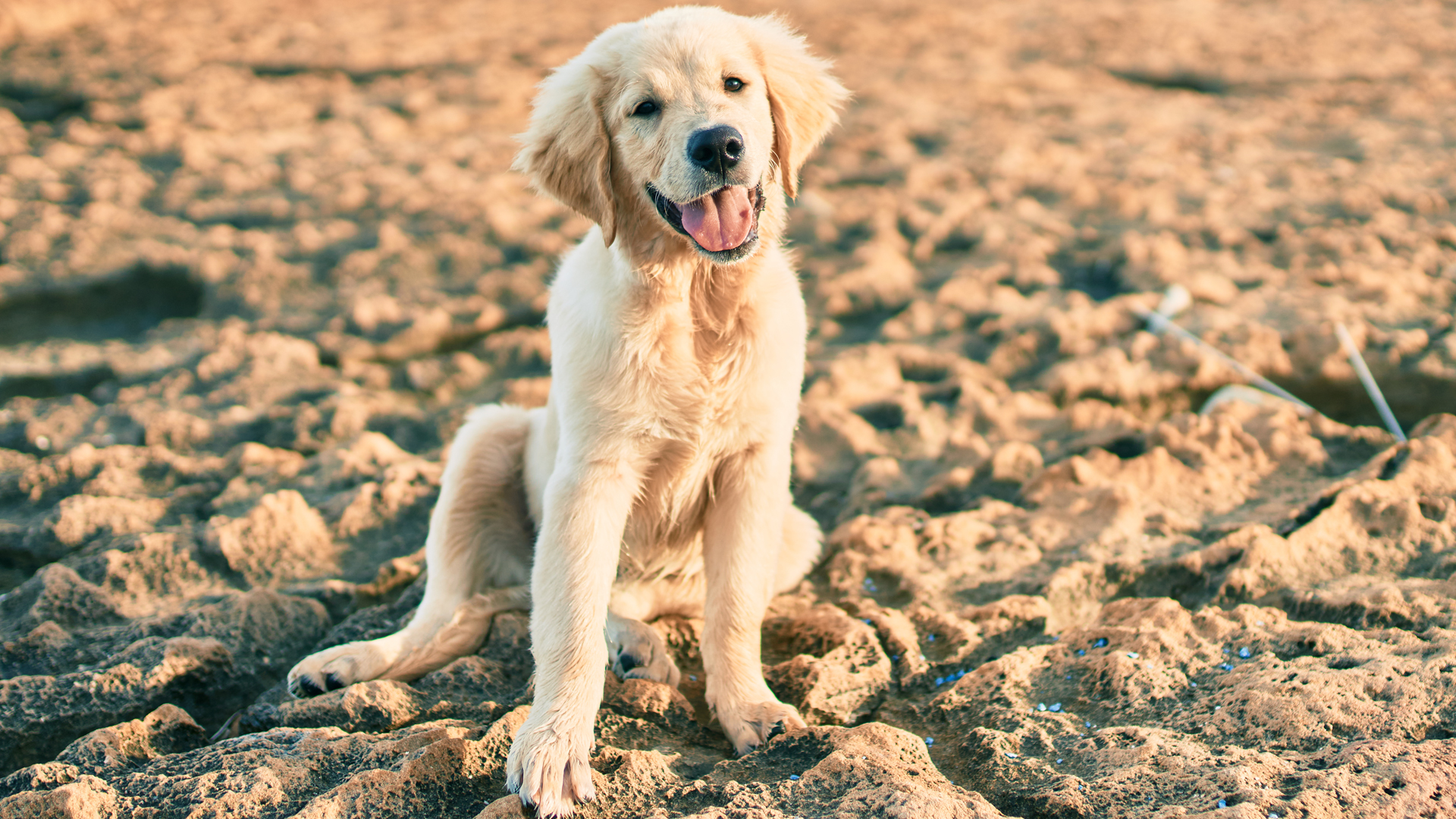
During the summer, some beaches no longer allow dogs to run around. Before heading off to the beach, check if it’s a dog-friendly beach or if your canine companion might have to sit this adventure out.
If the beach is dog-friendly, test the sand to make sure it's not too hot. If it's hot for you, it’ll be hot for your dog, so find shade or bring a beach towel or an umbrella.
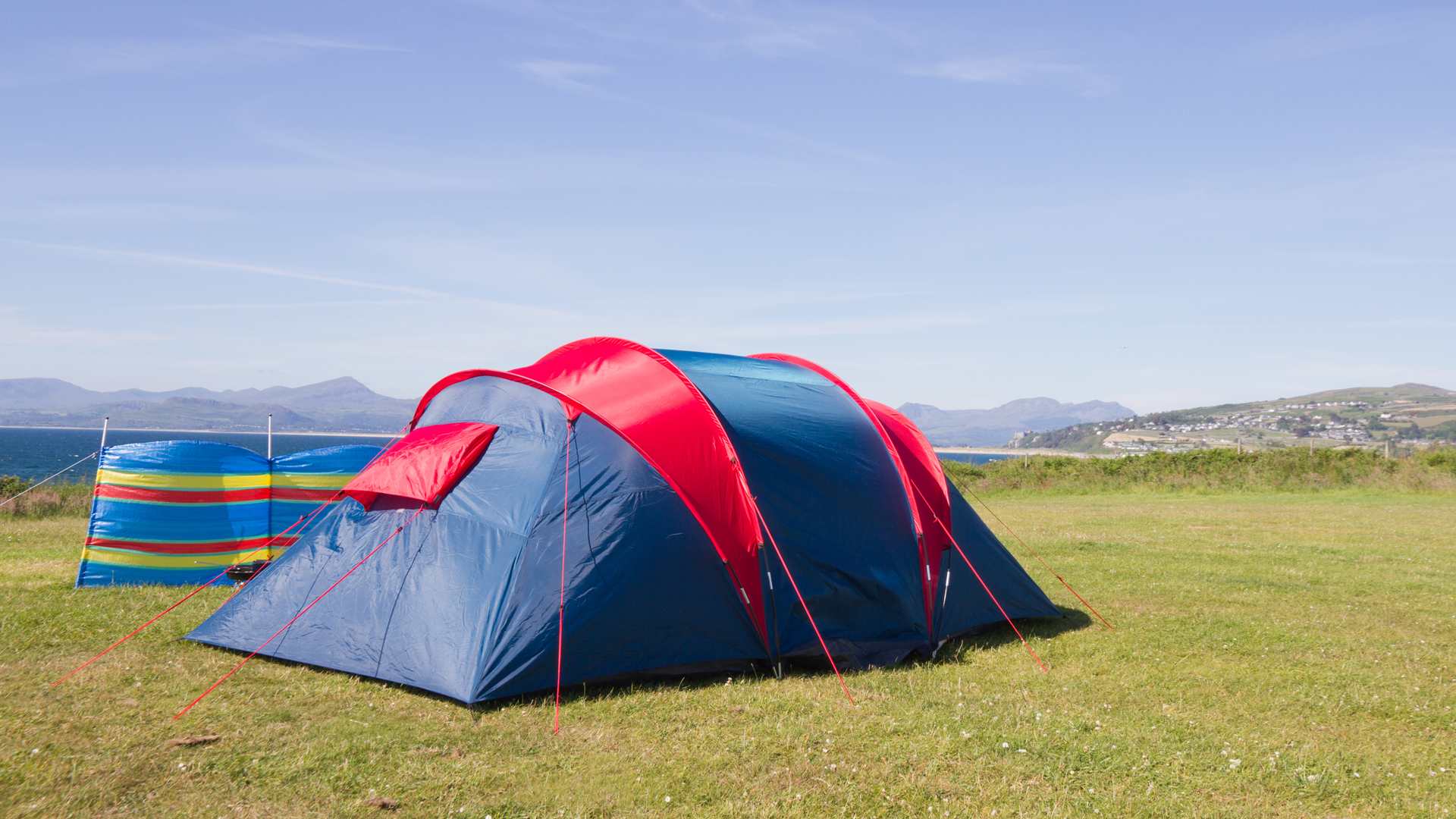
A sea breeze tends to come with the territory in coastal locations. The good news is that with the help of one or two strategically placed windbreaks, it’s easy to shelter your pitch. If high winds are expected, look for a windbreak with reinforced poles and guylines. What’s more, a windbreak can come in very useful on family seaside trips; so it’s worth looking for one that comes with a carry case.
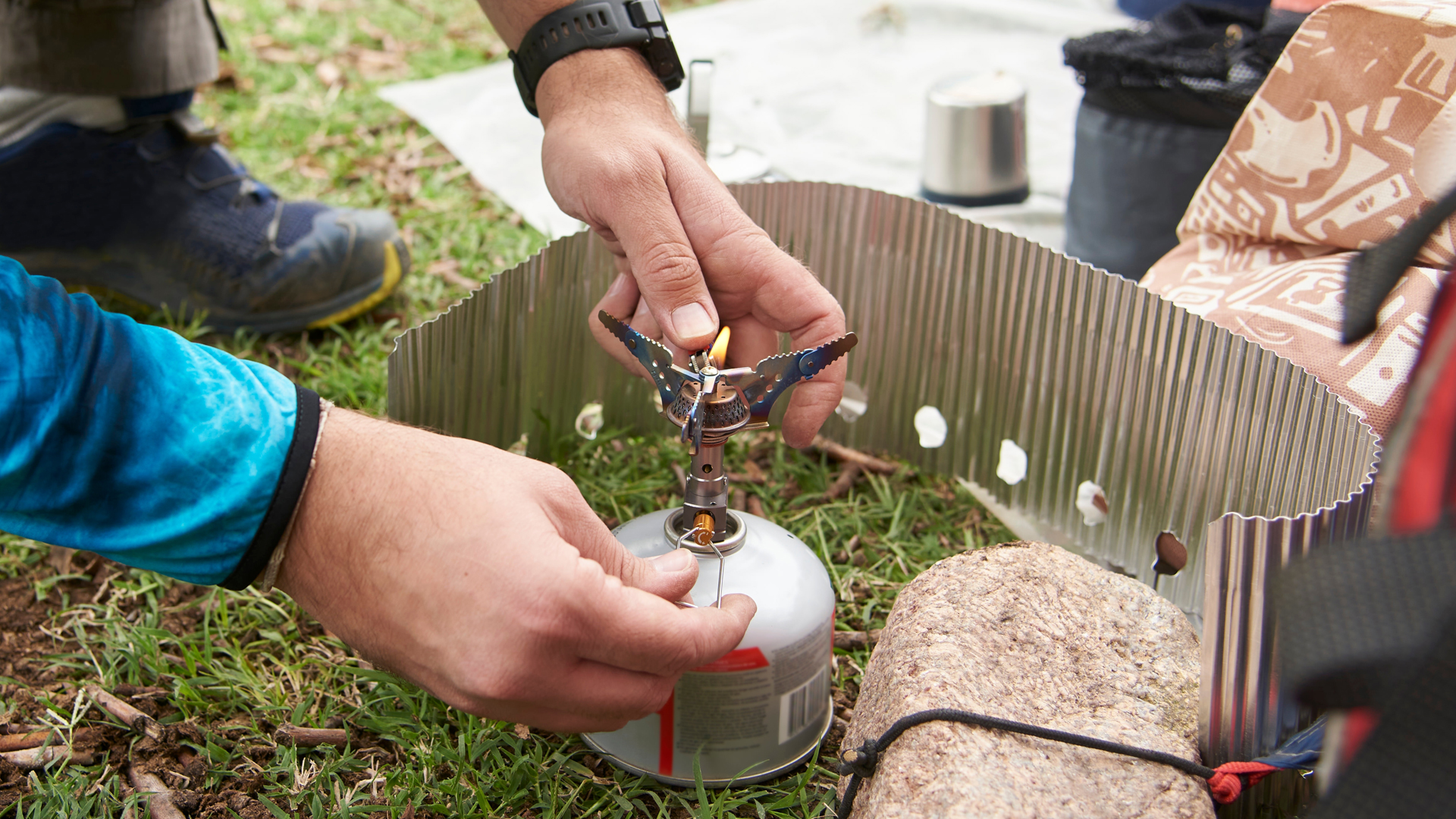
While we don’t need to tell you that barbecuing inside isn’t something we’d recommend for a number of health and safety reasons, a camping stove windshield can be ideal if you need to cover a small camping stove or a prep area. As an alternative to sitting outside on an evening, you might also want to consider a day room tent, which is essentially a separate ‘utility tent’ with plenty of interior height, typically with daylight panels across the roof. This type of structure can be great for meal times, and entertaining — or simply for sitting back and relaxing, whatever the weather.

Camping on the beach makes for a brilliant family fun holiday as you’ve got the whole beach at your disposal for fun games. Bring a frisbee, fly a kite or check out these camping games, which can be played at a campsite or beach.
Remember to also pack a bucket and spade which can be used for building sandcastles or rockpooling.
If the weather is not so good, and you’re keeping electronics to a minimum, check out these printable kids' activities or bring an interesting travel book and let your imagination wander around the globe.

Broken seams are the most frequent cause of tent leaks, so inspect the seams before you set off, particularly if you’re using an older tent. Apply a seam grip adhesive to reattach any fraying seam tape, and in cases where the tape has deteriorated significantly, remove the tape completely before applying seam grip directly along the seam itself.
Rainwater will accumulate in dips and hollows, so always aim to pitch on level ground. Your ground sheet is essential for preventing water and condensation, so when pitching up, always make sure it is tucked tightly into the seams and that it doesn’t extend further than the footprint of the tent. Ensure that the tent is pulled taut, as this prevents water pooling — which can damage the fabric — and also makes the structure as rigid as possible, so it’s able to fend off gusts more effectively.
Check out more helpful tips on camping in the rain here.

Make sure to bring a dustpan and brush to keep out any sand in your camping unit. To prevent sand from getting into your unit in the first place, create a sand-free entry. You can use a small paddling pool where you can wash your toes and have a towel for drying. An awning is great to store any sandy gear that you don't want in your camping unit.

Mosquitoes love hanging out at the beach, which is why you should invest in a good bug repellent to keep pesky bugs away from you. If you do get bit, make sure you have antihistamine tablets in your first aid kit or an insect bite relief cream to stop the irritation.
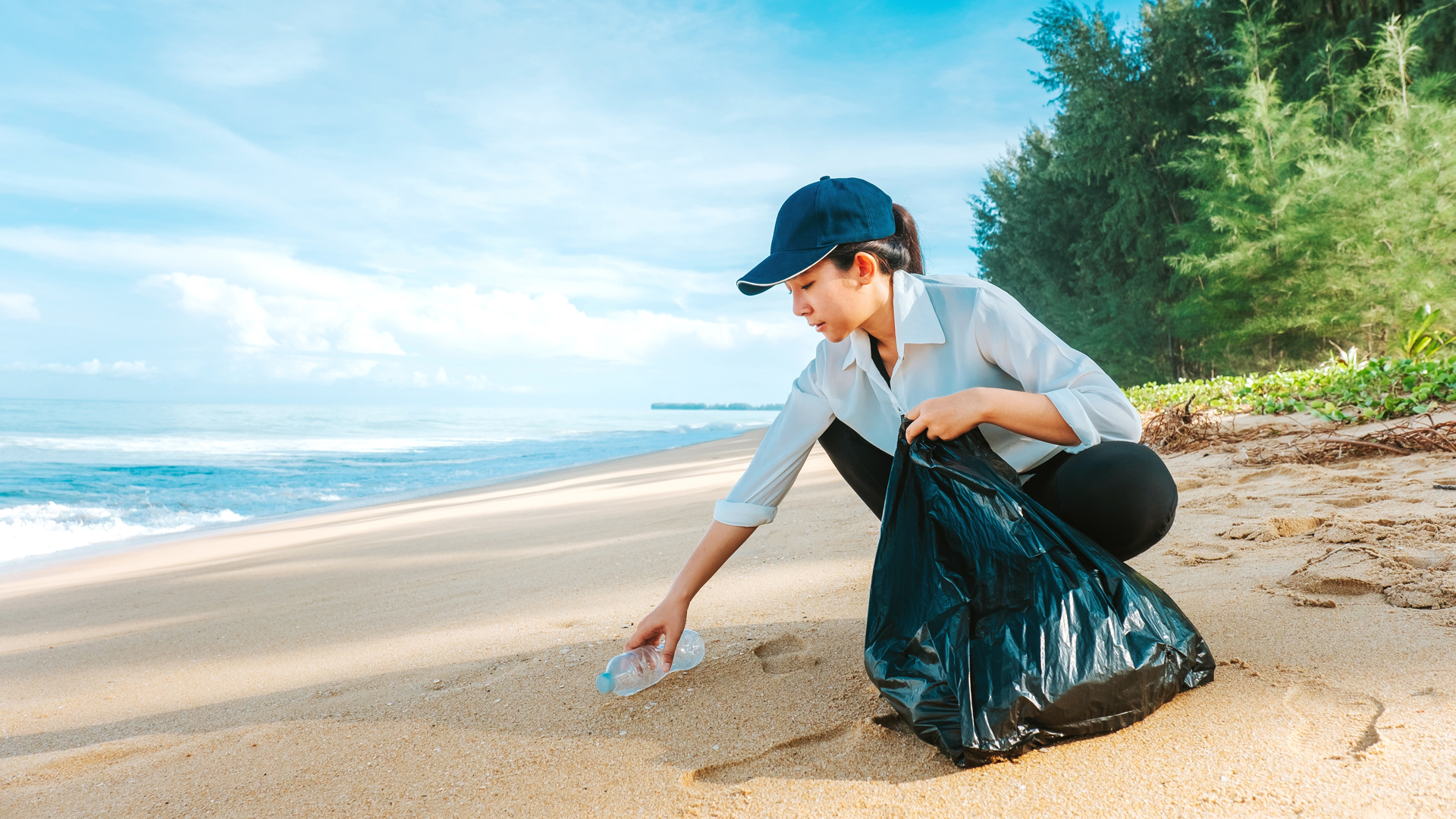
When beach camping, make sure you are respectful and practise the leave no trace code. This means leaving your camping area in the same condition you found it. This helps to protect the environment and causes minimal disturbance to wildlife.
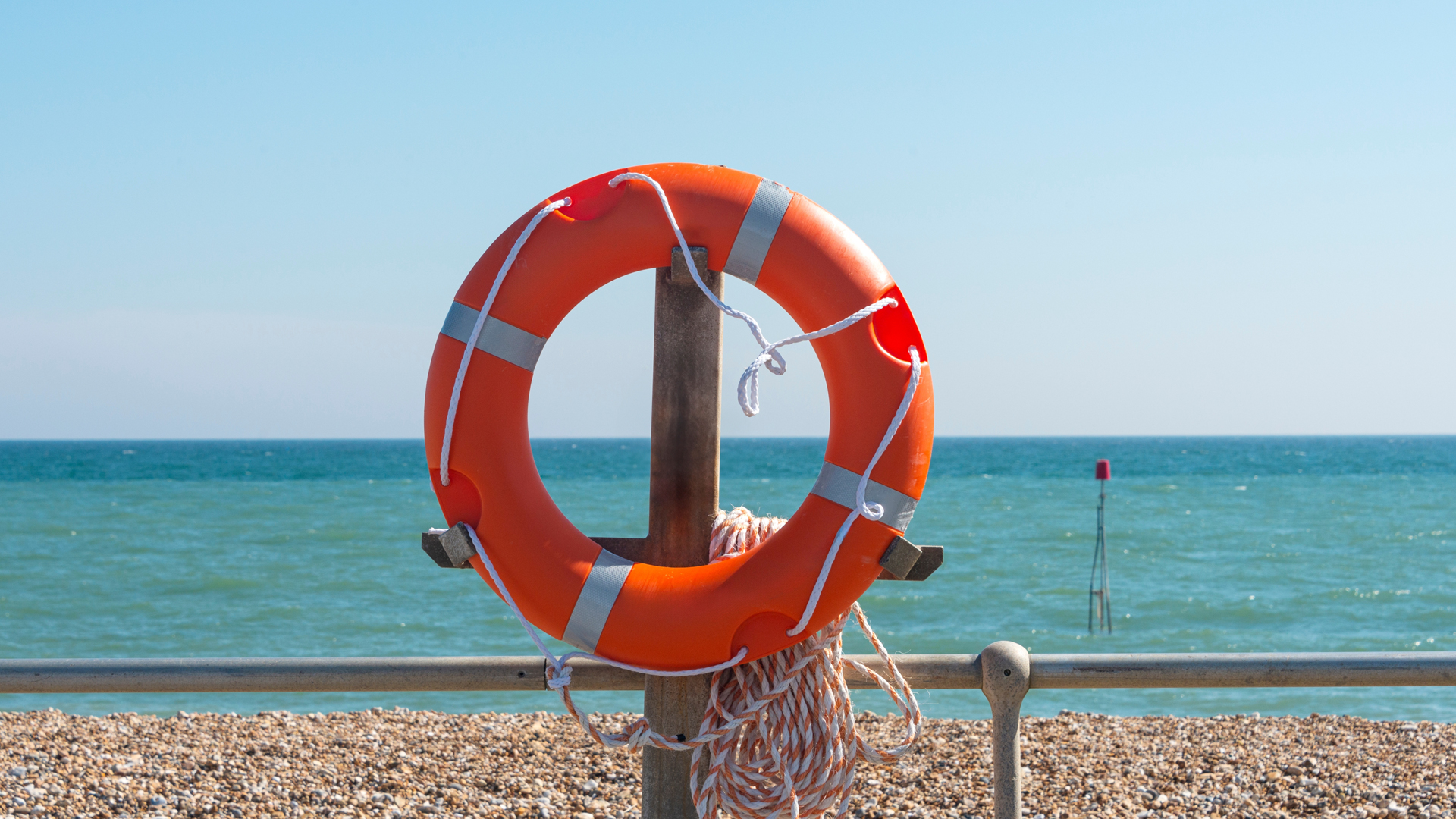
When camping by the beach, it is important to be aware of local conditions, such as tides, currents, and other potential coastal hazards. Follow water safety guidelines and never leave children unattended by the water.
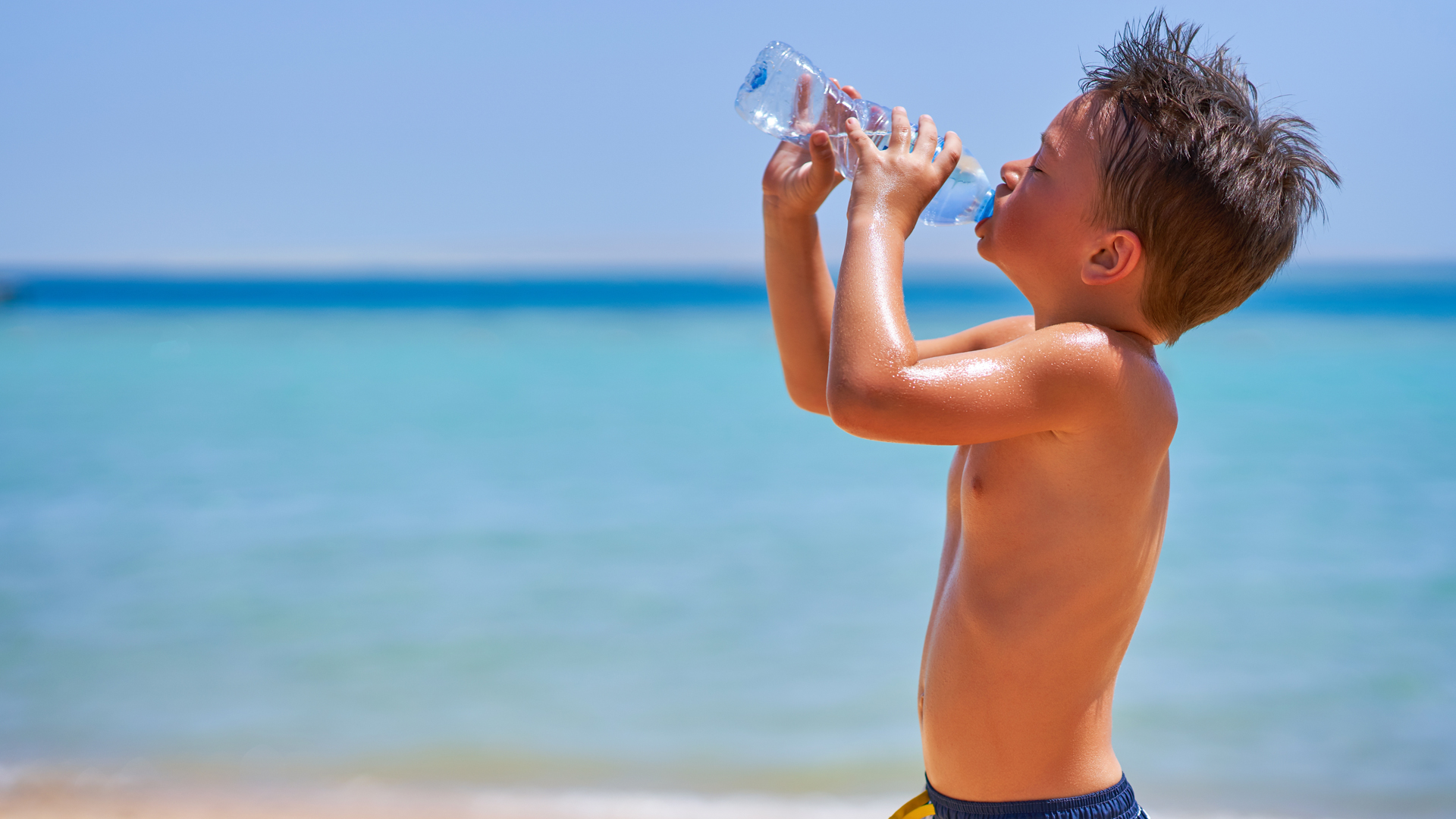
Make sure to bring plenty of drinking water and stay hydrated on your camping trip, especially in the heat.
Top tip: Purchase a reusable and insulated water bottle, so your drinks stay colder for longer. This will really help you on warmer days. Here are some fabulous eco-friendly reusable water bottles that are perfect for any trip.
If you’re camping by the coast with your dog, bring a travel water bowl, so they can also stay hydrated throughout the day.
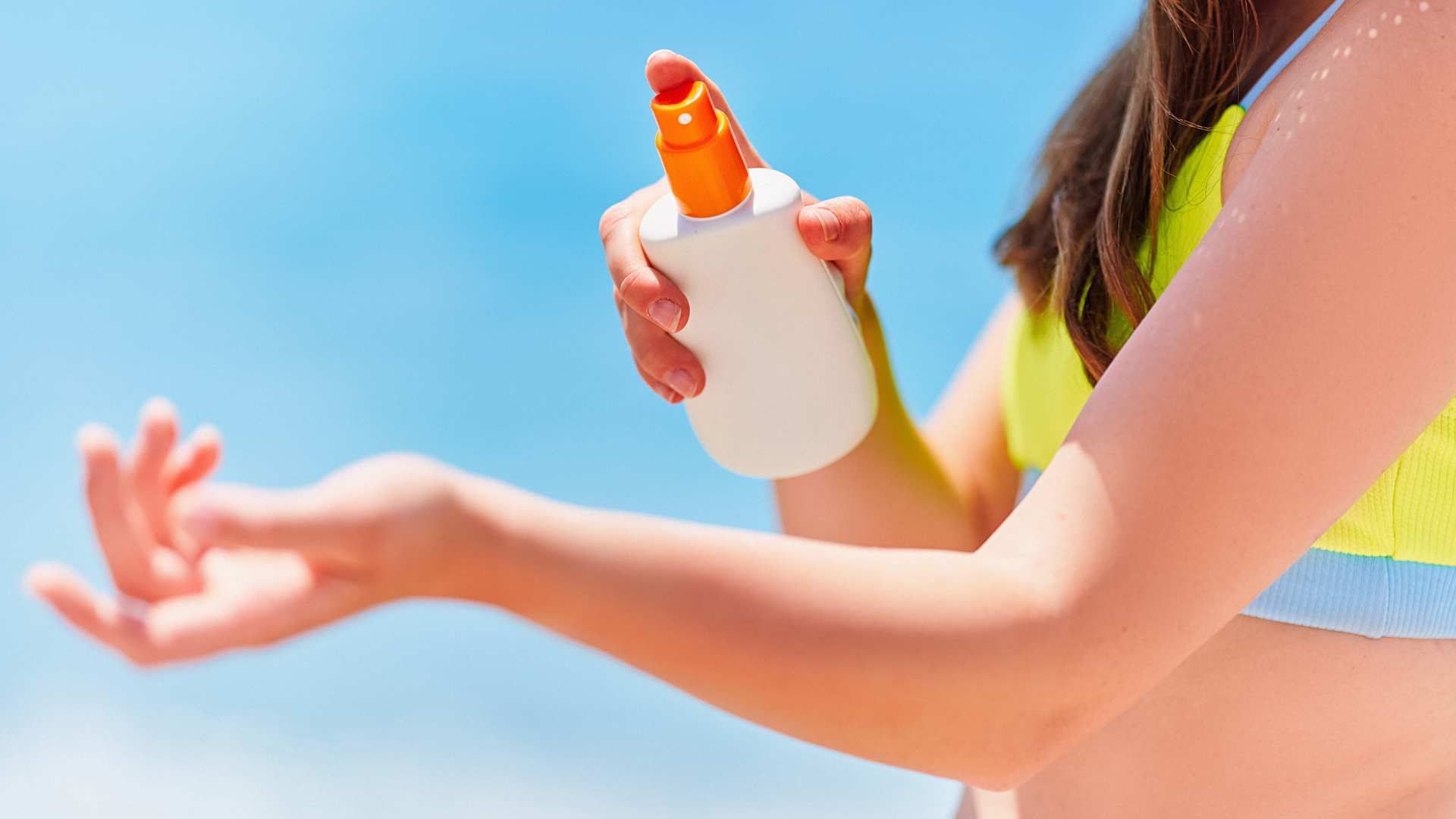
Sun exposure can be even more intense near the coast, making sunscreen your best friend on sunny and hot days by the beach. Be sure to reapply during the day even if you’re sitting in the shade, as UV rays can damage skin.
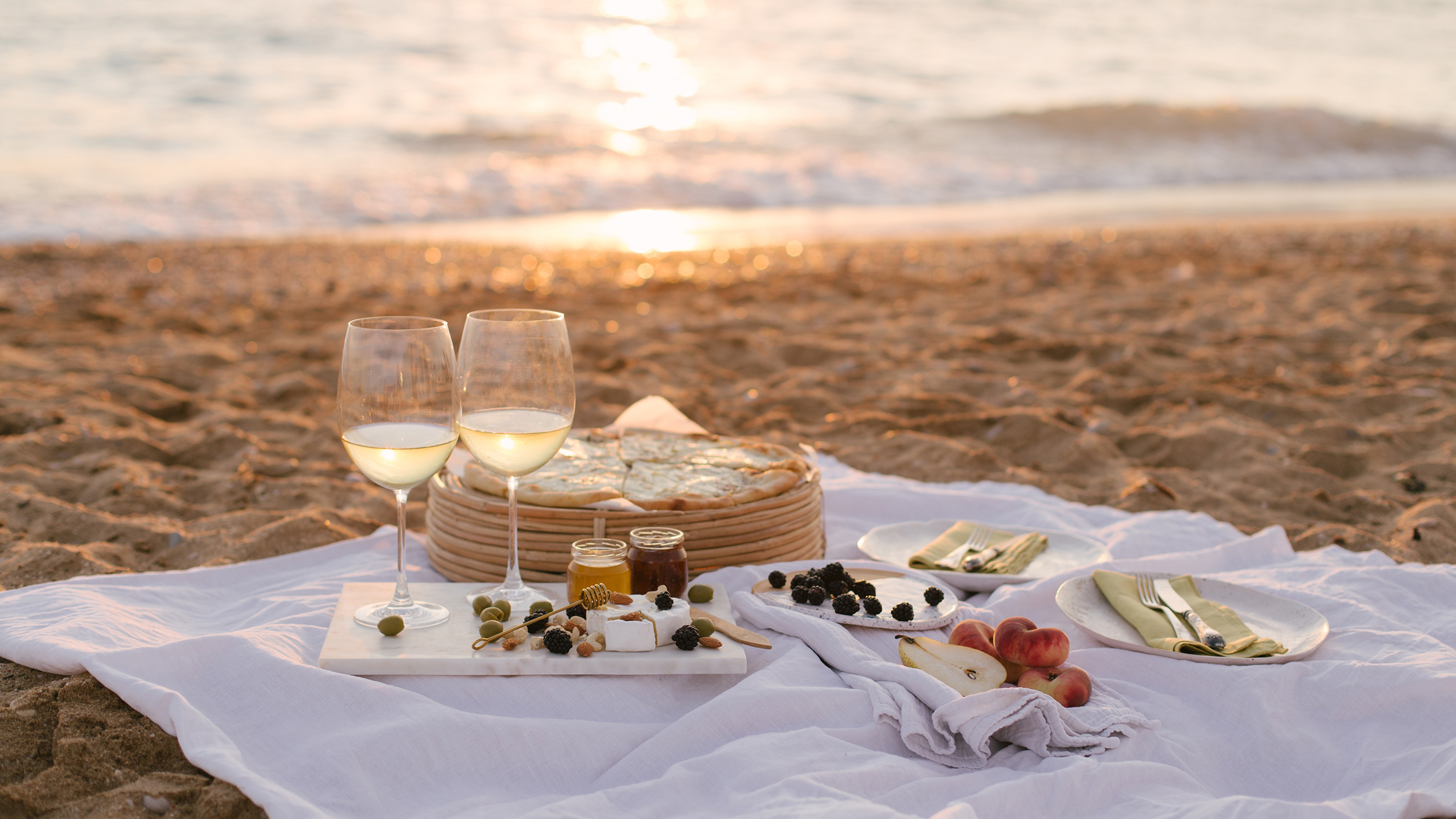
Watching the sunset on the beach is truly a magical experience. However, sitting on the sand isn’t always the most comfortable. Bring a picnic blanket along with you to enjoy relaxing on the beach in comfort.

If you’re visiting a pebble beach a picnic blanket may not be the most comfortable protection against the stones. A foldable camping chair is compact, lightweight, easy to carry and most importantly, much more comfortable than laying on the ground. Check out our recommendations on the best camping chairs and bring one with you on your beach trip.
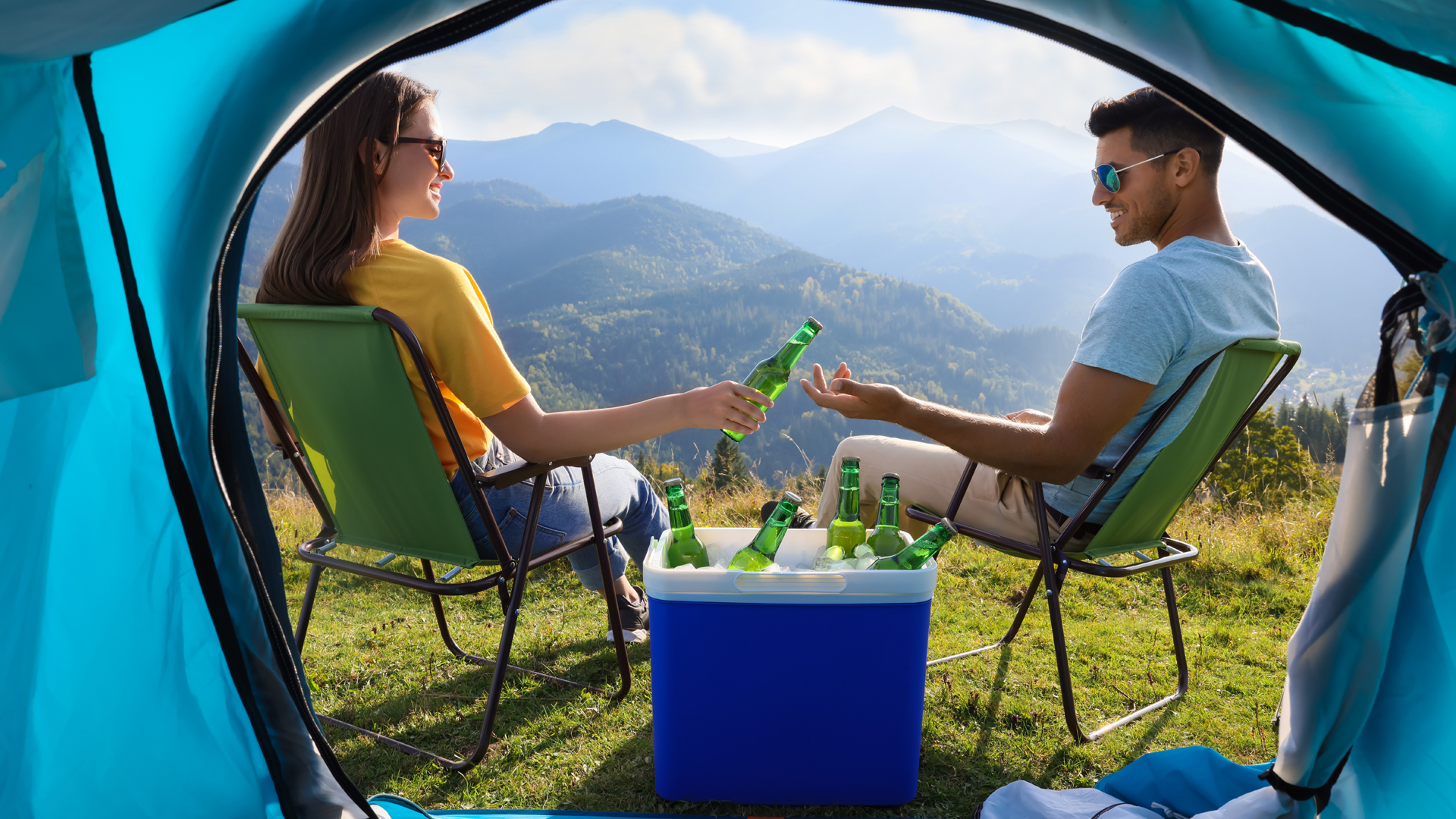
Coolboxes are great for keeping drinks and food cool on a sunny day by the beach. Best of all, you can put a damp towel in there and use it afterwards to keep you cool during a heatwave. This is especially helpful if you're camping with a dog.
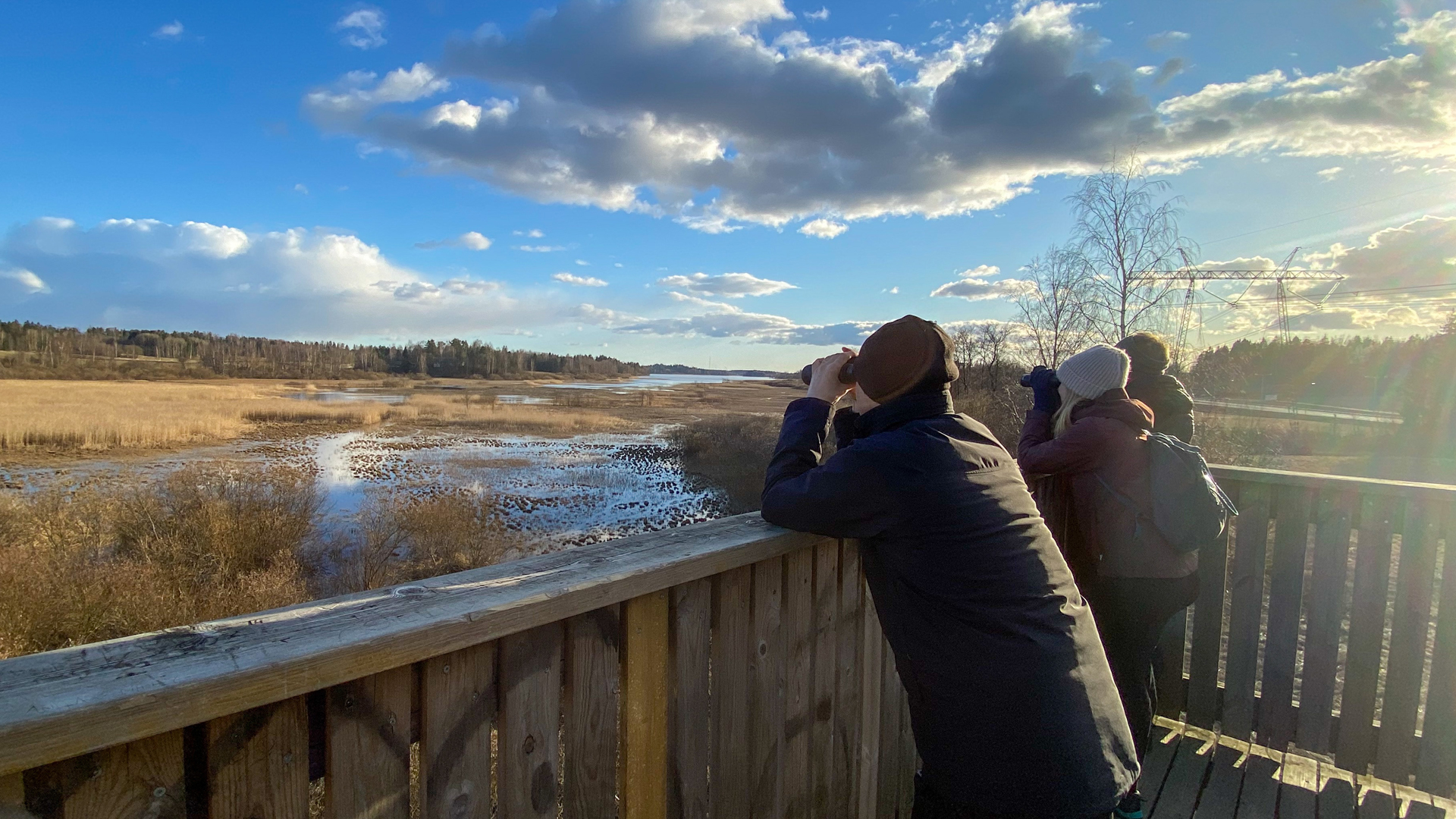
A coastal camping trip is never complete without some wildlife watching. Carry a pair of binoculars with you and see what you can find in the water or up in the sky. Many of our campsites are a haven for birdwatchers so keep your eyes peeled for some rare finds.
Check out our recommendations on the best binoculars.

Although you can only hope that the weather stays lovely on your beach camping trip, it can get cold by the coast, especially overnight. In this case, make sure you pack extra layers so you can have a relaxing sleep.
Are you ready to explore some of the UK’s best coastal camping spots? Search over 2,000 sites in our campsite directory today.
